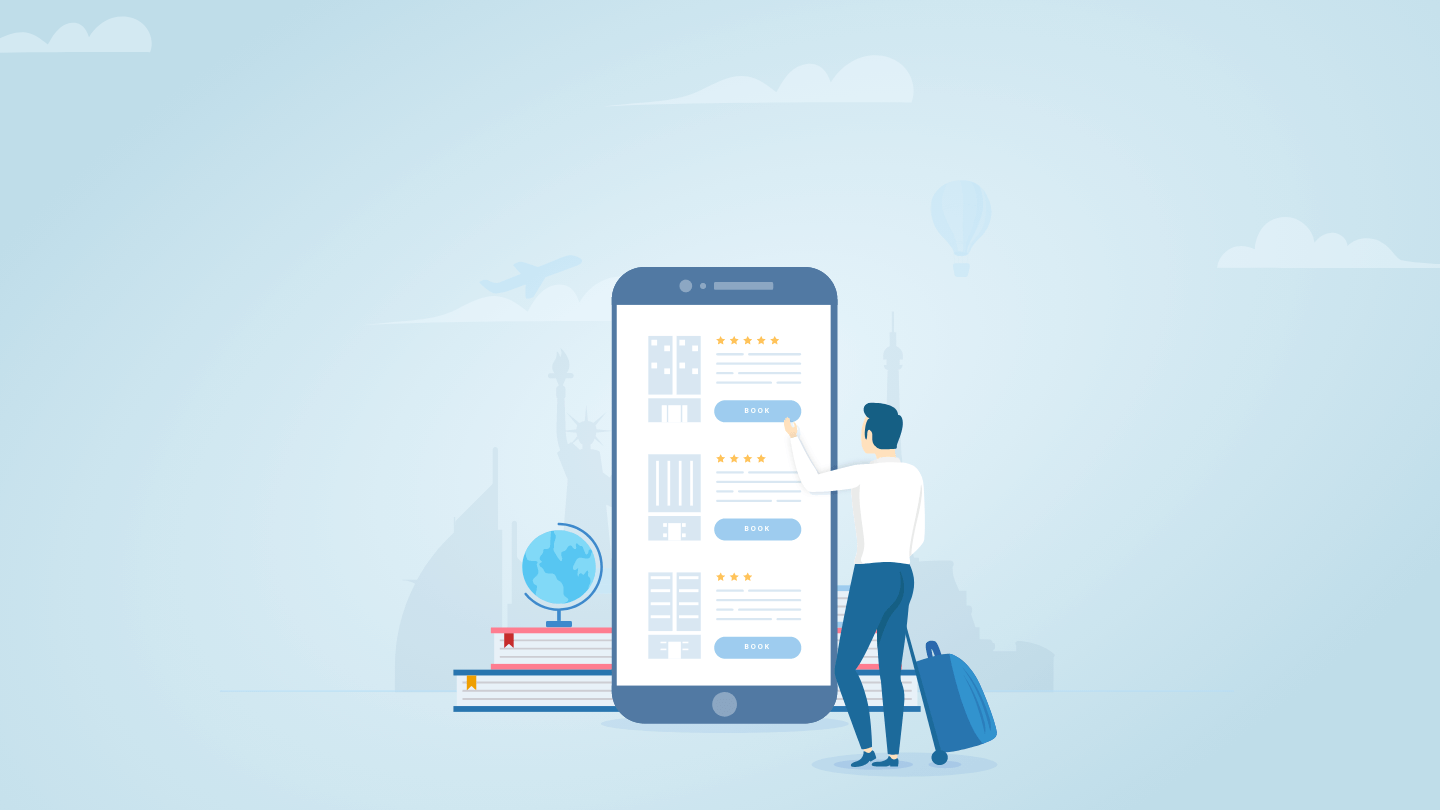In a world that’s increasingly connected through smartphones, the hospitality industry is no exception. Mobile app development has emerged as a powerful tool, revolutionizing the way hotels, restaurants, and other hospitality businesses operate. From enhancing guest experiences to streamlining internal processes, mobile apps have become an indispensable part of the industry’s success. In this blog post, we’ll explore the significance of mobile app development for the hospitality sector, delve into its benefits, and highlight some real-world examples of innovative apps in action.
The Guest Experience Transformation
One of the most significant impacts of mobile app development in the hospitality industry is the transformation of the guest experience. Today’s travelers expect seamless and personalized interactions from the moment they book a room or table to the moment they check out or leave a restaurant. Mobile apps cater to these expectations by offering a range of features that enhance the overall guest experience.
Booking and Reservation: Mobile apps allow guests to book rooms, tables, or spa appointments conveniently. They can browse through available options, select preferences, and make reservations in a matter of minutes.
Check-In and Check-Out: Gone are the days of waiting in long lines at the hotel front desk. With mobile apps, guests can check in and out digitally, saving time and reducing contact with staff.
Room Control: Some upscale hotels have introduced mobile apps that enable guests to control room amenities like lighting, temperature, and entertainment systems through their smartphones. This level of personalization enhances comfort and convenience.
Recommendations and Concierge Services: Many hospitality apps provide guests with personalized recommendations for nearby attractions, restaurants, and activities. They also offer concierge services, helping guests with requests and information.
Mobile Key Access: Mobile apps can turn a guest’s smartphone into a room key, eliminating the need for physical keycards and ensuring security through encryption.
In-Room Dining: Guests can use mobile apps to place orders for in-room dining or room service, making the process more efficient and reducing the need for direct contact with staff.
Streamlining Operations
Mobile apps aren’t just about improving the guest experience; they also play a vital role in streamlining operations for hospitality businesses. Here’s how:
Inventory Management: Restaurants and hotels can use apps to track inventory levels and automate reordering processes. This reduces the risk of running out of essential items and minimizes wastage.
Employee Management: Apps can help manage employee schedules, track attendance, and streamline communication among staff members. This leads to better coordination and efficient service delivery.
Billing and Payment: Guests can settle bills through the app, reducing the workload on front-desk staff and speeding up the check-out process.
Feedback and Reviews: Apps often have built-in features for collecting guest feedback and reviews. This information is invaluable for making improvements and addressing issues promptly.
Real-World Examples
Let’s take a look at some real-world examples of mobile apps that have made a significant impact on the hospitality industry:
Marriott Bonvoy: Marriott’s mobile app allows guests to book rooms, check-in and out, access their rooms using a mobile key, and even request additional services like extra towels or room service.
OpenTable: OpenTable revolutionized restaurant reservations. Diners can easily find and book tables at restaurants, read reviews, and earn rewards through the app.
Airbnb: While technically not a hotel or restaurant, Airbnb’s mobile app has transformed the way people find and book accommodations. Travelers can browse unique listings, communicate with hosts, and manage bookings all in one place.
Hilton Honors: The Hilton Honors app offers a range of features, from booking and check-in to room customization and even the ability to use points for upgrades and free stays.
Starbucks: Starbucks’ app allows customers to order and pay ahead of time, earning rewards and skipping the line when they arrive to pick up their coffee and snacks.
These examples demonstrate the versatility and potential of mobile app development within the hospitality industry. Whether you’re a large hotel chain or a small boutique restaurant, there’s a mobile app solution that can enhance your operations and elevate the guest experience.
Conclusion
Mobile app development has become a game-changer for the hospitality industry, shaping the way businesses interact with guests and manage their operations. From booking and check-in to personalized recommendations and in-room control, these apps have redefined the guest experience. Moreover, they’ve streamlined internal processes, making operations more efficient and cost-effective. As technology continues to advance, we can expect even more innovative and impactful mobile apps to emerge, further shaping the future of the hospitality sector. So, if you’re in the hospitality business, it’s time to embrace the mobile app revolution and stay ahead of the competition. Your guests will thank you, and your bottom line will too.


